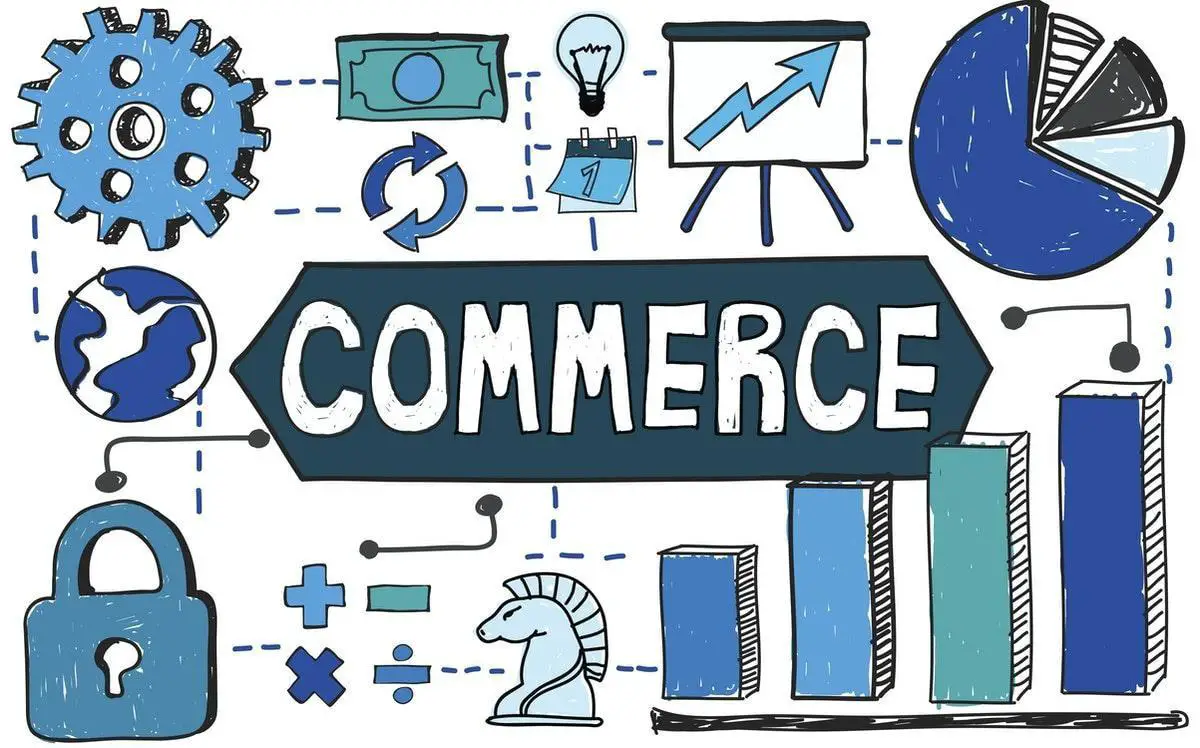How DevOps Can Transform Your Ecommerce Business?
Considering the number of small-scale and large-scale retailers residing in the competitive world of e-commerce, it’s safe to say that the industry is saturated, to put it mildly.
E-commerce has expanded to embrace selling platforms outside of selling websites, and into social networks to enable individual sellers such as jewelry-makers or local pastry bakers to sell via Instagram or Facebook.

Of course, these aren’t foreign to large brands, as well, so even retailers of various sizes have moved to social platforms to expand their selling potential, too.
All of these fast-paced changes have increased the pressure upon e-commerce businesses to establish that special something to set them apart. It seems that the answer lies in changing things from within, or to be more specific, by introducing agile business models such as DevOps to enhance their productivity, collaboration, and flexibility.
Now, while this model is well-known and applied in IT spheres such as software development, e-commerce businesses have yet to discover its many perks. Here’s what you can expect DevOps to do for your e-commerce business.
Enhancing collaboration
Every cog in the intricate machine that is e-commerce plays a vital role in its success and growth. Over time, those cogs, so to speak, tend to work more independently believing that they’ll save time and boost productivity. Alas, modern-day businesses actually require greater collaboration so that each department can leverage the knowledge and skills of their peers from other teams in improving their own performance.
In the end, the marketing team will fuel your sales funnel, while your social media managers will greatly depend on the data collated by your IT and marketing experts in analytics and customer behavior. DevOps is tightly-woven around the notion of ongoing collaboration, empowered by the cloud, where your teams can seamlessly share files, collaborate in real-time, and brainstorm whenever necessary to enhance your strategies on the go.
Agility for improving customer experience
Another crucial quality that sets DevOps apart from other models is the fact that it’s agile. Simply put, no process has a clear finish line because you can always go back to any part of your project (whatever it may be) to improve any of its stages and then deliver better results for your end consumer.
For example, your DevOps teams can continuously monitor and test the checkout process, find glitches, report, and go back to the drawing board to make adjustments without bringing the entire site down.
Since DevOps is a complex solution to implement, more e-commerce companies are turning to DevOps as a service in order to make the transition more seamless and rely on professionals who understand the process entirely. In such controlled environments and under the watchful eye of your IT professionals, you can rest assured that the agility of your DevOps will help your entire e-commerce staff to deliver superior customer experience through fixing problems and even preventing them through ongoing monitoring and testing.
Automated processes
If you’ve already tried implementing automation in your marketing strategy, you understand how impactful this can be for your overall productivity. Automation in DevOps allows the same benefits to emerge: it helps your core team focus on hands-on tasks as opposed to wasting time on menial grunt work. It’s also a cost-cutting strategy that helps you allocate all of your resources towards major project aspects every step of the way.
The beauty of DevOps automation is that you can pick and choose what tasks will be automated, and which require human supervision or admin approval.
Communication and accountability
Working on a single platform enabled by your DevOps solution, typically on the cloud, means that your entire e-commerce organization sits in the same digital realm – no matter where they are physically. In a sense, using DevOps helps you adapt to remote work more seamlessly and allows you to hire e-commerce experts no matter their location. You can have a social media manager living in Hungary, while your IT team can be all across the US.
The DevOps unified platform is, as we’ve already pointed out, excellent for collaboration, but even more so for better communication and growing accountability. With visible contributions from each team member and clear overview of the time people spend on each task, you’ll know precisely how your people are handling their workload.
Business adaptability
The final, and often the most appealing result of hiring DevOps Engineers for e-commerce is that your business will be far more flexible as a whole. With agile project management paired with transparency and ongoing automation, every department has the data, the skills, and the tools they need to improve their processes.
The end goal for such a mindset is that the customer will benefit from all of those improvements and your adaptability. When your IT crew notices that your checkout is not optimized, your marketers can adapt landing pages while your social media teams can assist customers until the checkout issue is resolved. Then again, everything from your product descriptions all the way to imagery you use can be replaced at a moment’s notice with DevOps to allow you such flexibility.
Although e-commerce will remain a “hot” industry that empowers companies to join the playing field, success requires a more forward-looking mindset and greater business flexibility. DevOps provides just that and so much more, and it is slowly becoming the preferred solution for many e-commerce companies out there. Perhaps it’s time for your e-commerce business to consider DevOps in your own model.

Jolene Rutherford is a marketing specialist – turned blogger. Interested in digital marketing and new technology trends. Love sharing content that can help and inform people.
Read more articles about marketing.
8 Effective Ways to Market Your App in 2025
The app market continues to grow with spectacular figures, and more than ever, you must have an effective marketing plan. While millions of apps are listed in app stores, you must be visible. Knowing your target audience and their pain point can help you create a...
How to Choose the Perfect Custom Exhibit Design for Your Brand
Do you want to create strong memories at your upcoming trade show display? A custom exhibit design works best when it builds a brand experience that showcases your brand identity while keeping visitors truly engaged. Recent trade show statistics reveal a 15%...
9 Game-Changing Strategies to Skyrocket Your SEO Performance
It’s no surprise that many businesses have started focusing on their online presence. That’s because the internet has created a new avenue for businesses to expand their reach and find new audiences. However, finding these results isn’t easy, especially for businesses...
How Lawyers Can Employ Marketers to Get More Clients
Newly, the world has become highly sensitive with the legal profession across the globe having many lawyers demanding similar clients. Essential in today’s market should, therefore, be marketing and establishing a unique image for the lawyer so that whenever a...
The Must-Dos for Brands Planning to Penetrate European Markets
Entering European markets offers considerable opportunities for brands seeking to expand their reach and drive growth, particularly through effective business strategies and understanding regulatory environments. This article examines the primary benefits of...
Why Top Platforms Are Crucial for Business Email Marketing
Marketing via email continues to dominate the world of marketing online and provides businesses with an unbeatable return on investment and access to their customers. However, the secret to unlocking its full potential is in the software that you choose. A good...











0 Comments